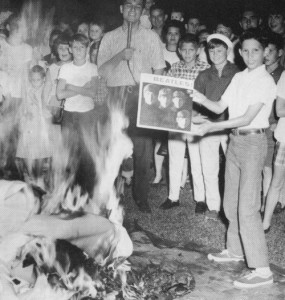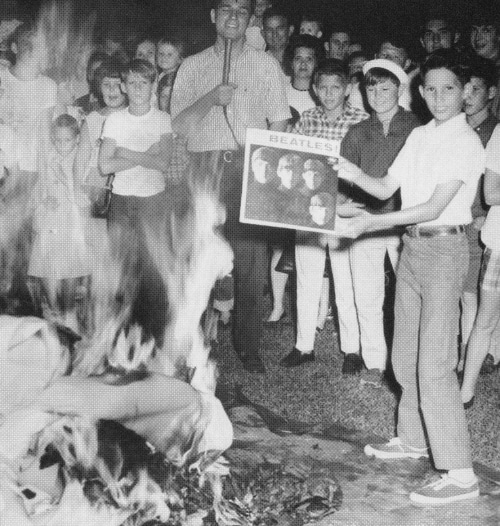In Australia, no one took much notice of the John Lennon quotation that later set off a media frenzy in America. Chalk it up to a fundamental difference in religious outlook between Australia and America, or to a fundamental difference in sense of humor.
Whatever the reason, it was only after the American press got hold of his words some five months later that the John Lennon comment that first appeared in the London Evening Standard on March 4, 1966, erupted into the “Bigger than Jesus” scandal that brought a semi-official end to the giddy phenomenon known as Beatlemania.

From there, a handful of Bible Belt disc jockeys took over, declaring Lennon’s remarks blasphemous and vowing an “eternal” ban on all Beatles music, past, present and future. “Our fantastic Beatle boycott is still in effect,” announced two DJs on WACI Birmingham in August 1966: “Don’t forget to take your Beatle records and your Beatle paraphernalia to any one of our 14 pickup points in Birmingham, Alabama, and turn them in this week.”
The plan in Birmingham, as in various other cities around the South, was to burn the Beatles records turned in by angry listeners. Though it is unclear how many such events really took place, the story of the burnings definitely reached the Beatles. “When they started burning our records…that was a real shock,” said John Lennon years later. “I couldn’t go away knowing I’d created another little piece of hate in the world. So I apologized.”
The apology Lennon offered was not for the message he was trying to convey, but for conveying it in a way that confused its meaning. At a press conference in Chicago, John explained: “I’m not anti-God, anti-Christ or anti-religion. I was not saying we are greater or better. I believe in God, but not as one thing, not as an old man in the sky. I’m sorry I said it, really. I never meant it to be a lousy anti-religious thing. From what I’ve read, or observed, Christianity just seems to be shrinking, to be losing contact.”


